(Haven’t read Part 1? Click here.)
As I said at the end of my last post, I’d like to bring a new perspective to personal snapshots as the basis for portraits. I believe that, treated properly, a client’s snapshots can indeed be the core of a terrific work of art. This post will explain why. (Future installments will talk about how.)
A caveat: I believe snapshots can be used successfully only by an artist who has a huge bank of visual knowledge of how the 3-dimensional world works, together with lots of experience drawing and painting from life. Some one who never paints from anything except photos is unlikely – I would think – to have the skills and experience they need to create fine art portraits from snapshots.
But why even bother with snapshots? If an artist is using photos, why not just use technically perfect ones taken by the artist under controlled conditions?
Well, sometimes photos taken by the artist can make wonderful portraits. There are some subjects who “come alive” in front of any camera. These people produce captivating expressions no matter who’s taking the photo. But often that’s not the case.
To explain why I feel that capturing personal expression is so important, I need first to describe my personal artistic goals in portraiture.
I am passionate about painting how my subjects relate to other people. To me, painting an expressionless face for its physical characteristics alone is to paint a person isolated from human contact. It makes me lonely just to think about it.
To connect with other people, human beings use words, the voice, touch, body language, facial expression, and so on. But portraiture is a visual medium. We can’t paint sound or touch. So if we want to paint the way a person engages other people, we need to paint their facial expression and body language. These are how we visually communicate our needs and emotions to each other.
I recently took two nearly-identical snapshots of my grown daughter. The first shows the serene smile of the young woman my daughter has become. In the second photo, underneath her grown-up smile I can see the breathless, excited smile she had as a little girl. The differences between the expressions in these two photos are very subtle. If I were commissioning a portrait of her, I would want that very particular expression in the second photo: the one in which I see both the mischievous, merry little girl and the self-confident young woman. But I doubt that an artist who didn’t know her could have elicited that expression so personal to her while posing her in artificially perfect conditions.
Snapshots taken by family or friends are often more likely to capture expressions like this. Such expressions are frequently intimate, brought forth only in particular surroundings and situations. That is why I would rather work from a defective snapshot that captures the subject’s unique expression and surroundings than work from a technically perfect but impersonal photo I’ve taken myself.
Human expressions are very complex and subtle. It requires great skill to capture them in paint. How does an artist paint a relaxed smile differently from a smile that looks forced? What makes eyes appear to twinkle? What are the facial changes that take a face from routine sadness to the most profound grief?
What subtle changes in line and shadow gave one photo of my daughter the additional layer of childish excitement under the young woman’s smile? How would an artist paint the second expression differently from the first?
The ability to capture expressions in paint is partly built on understanding the human language of expression. A relaxed smile, for example, is conveyed partly by the lower eyelids moving up over the pupil as the cheek muscles contract to pull the corners of the mouth upward. Painting a smiling mouth without this effect on the lower eyelid will create a false-looking smile.
So to paint expression, the artist needs to be able to analyze the effects of subtle changes in the shading and shape of facial flesh and muscle while forming the brush strokes that portray them.
My daughter’s mouth, chin, and lower eyelids in the first photo are very relaxed, expressing adult self-confidence. In the second photo, her lower lip, chin, and lower eyelids are all pushed very slightly higher on her face by the muscular tension of suppressed childish excitement. These subtle changes in the various parts of the face are the language in which humans communicate visually with each other.
Even beyond being able to paint expression, I would argue that creating a work of art from a snapshot requires at least as much artistry as does a photograph over which the artist has had control of lighting, pose, clothing, and so on. Snapshots are often faulty in multiple ways. Making up for a snapshot’s deficiencies requires tremendous technical skill. It also requires that the artist make constant artistic evaluations of the snapshot’s challenges as the painting develops. The painter must make continual artistic decisions about how to turn the snapshot’s deficiencies into artistic strengths.
Creating art from a client’s snapshot requires a lot of artistic skill precisely because the artist begins with an element so out of their control. It’s somewhat similar to using found objects to create sculpture. How the artist puts all the elements together determines whether something awful or something wonderful results.
In short, beginning a portrait with some one else’s snapshot creates all kinds of artistic issues that don’t occur when the artist begins with a photograph they’ve taken themselves under perfect conditions. In coming posts, I’ll describe a number of these issues that I’ve run into and how I’ve dealt with them technically and artistically.


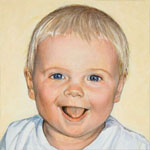

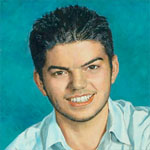
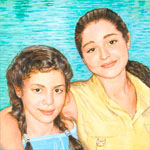
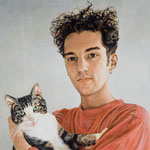
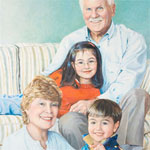
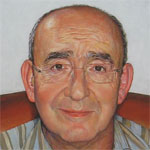
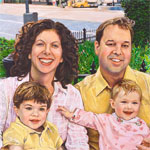
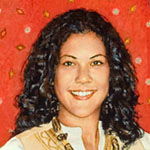
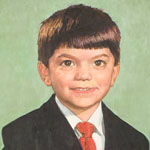
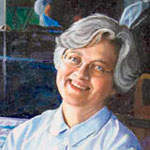
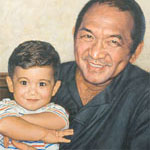
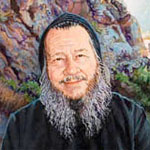
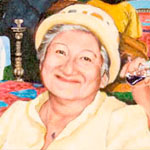
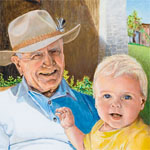
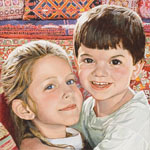


how to get on dark web deep web markets
dark market onion deep web drug links
darkmarket link drug markets dark web
tor dark web blackweb official website
dark web market dark web drug marketplace
dark internet tor markets 2022
how to get on dark web dark web link
dark web search engine deep web sites
tor marketplace darkmarkets
dark net deep web markets
alphabay url alphabay market link
dark web search engines darkmarket 2022
alphabay url alphabay market link
dark web link how to get on dark web
dark web market list dark internet
darknet drugs darknet site
darknet market tor darknet
alphabay darknet market alphabay market
You can certainly see your expertise in the work you write. The sector hopes for even more passionate writers such as you who are not afraid to say how they believe. At all times follow your heart.
dark web market links dark web search engines
darknet links darkmarkets
dark web websites deep web drug url
alphabay darknet market alphabay market darknet
darknet marketplace dark market link
tor marketplace dark markets
dark web sites links dark website
darknet market list dark web link
alphabay link alphabay darknet market
alphabay url alphabay market link
dark web market dark markets 2022
darkweb marketplace darkmarket link
deep web sites darknet sites
alphabay darknet market alphabay market darknet
darknet site darknet sites
dark website dark market 2022
how to access dark web deep web drug store
bitcoin dark web darknet market links
dark web market list blackweb official website
dark web search engine darkmarket list
darknet site dark web sites
alphabay market link alphabay link
dark web websites darknet links
darkmarket list darknet market list
bitcoin dark web tor markets links
deep dark web dark web markets
darknet sites tor markets 2022
dark market url dark markets 2022
dark web sites links dark website
deep dark web blackweb official website
darknet search engine darkmarket 2022